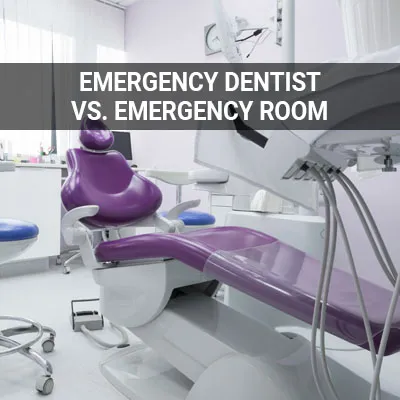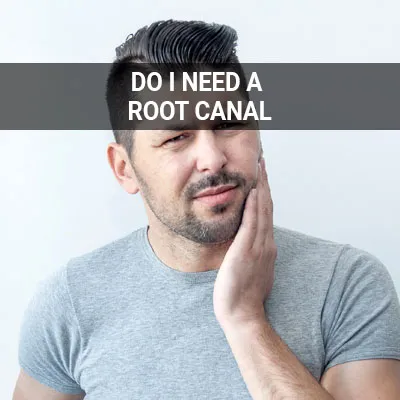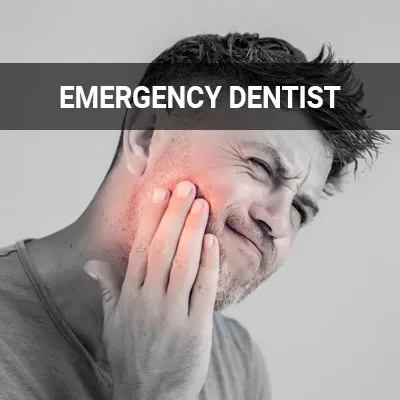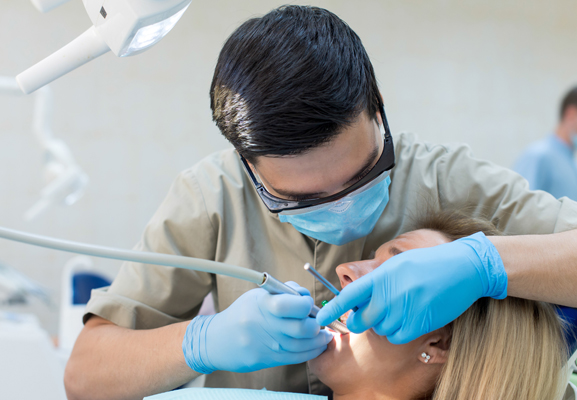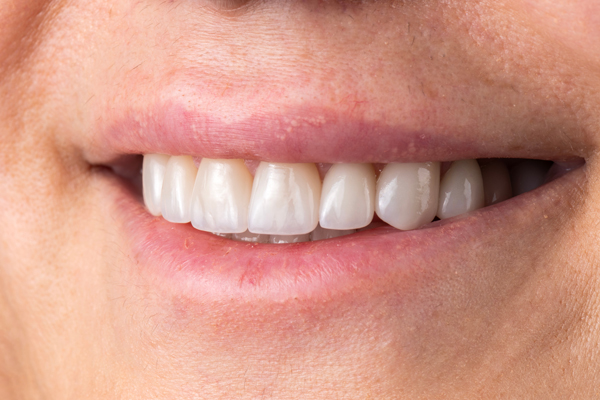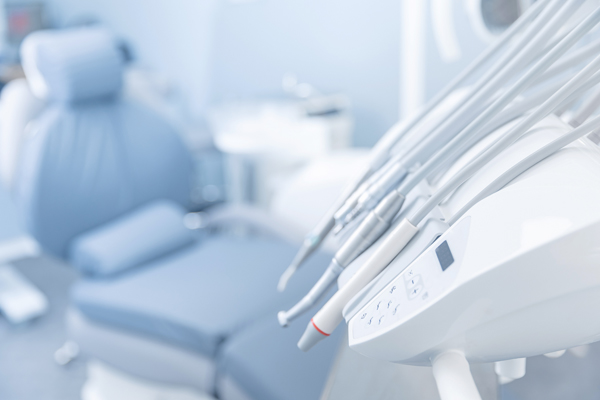Emergency Dental Care Charlotte, NC
When someone is suffering from severe pain or other serious dental issues, emergency dental care may be needed. Although many people experiencing oral issues can wait to schedule a regular appointment with their dentist, some situations require immediate treatment. Emergency dental care is necessary in certain acute situations and can stop severe pain, prevent chronic issues, and even save an individual's life.
Emergency dental care is available at Randolph Dental Care in Charlotte and the surrounding area. It may be difficult to understand what constitutes an emergency when it comes to dental problems. However, there are certain signs that indicate when someone should pursue more immediate care.
Ignoring a dental issue can have long-term consequences and can affect other teeth, the gums, or the underlying jaw bone. Knowing when a regular or emergency visit should be made can help control the problem more efficiently. Call us at (704) 366-3622 if you have dental questions and are unsure whether you should seek emergency treatment.
When to Seek Emergency Dental Care
Dental emergencies can include:
- Cracked or broken teeth
- Jaw or tooth pain
- Knocked-out or loosened teeth
- Oral bleeding
During an emergency, it is important to get help right away. Dental emergencies can worsen quickly. Additionally, researchers have also found that dental problems may raise a patient's risk of infection. For example, according to the Center for Disease Control and Prevention (CDC) untreated infections can increase the risk of heart disease or dementia. Other oral injuries may also affect the bones or joints.
Treatment can also prevent tooth loss. If a tooth is loosened or knocked out, a dentist can help. Prompt treatment may preserve the tooth — but if the patient delays care, they may lose the tooth.
“…researchers have found that dental problems may raise a patient’s risk of infection.”
Emergency Dental Procedures
During a dental emergency, the dentist performs a complete evaluation. The dental team may begin with an X-ray or other imaging test to check for problems below the gumline. Imaging tests can also diagnose a joint injury or bone fracture.
Next, the dentist performs a visual inspection. Finally, if necessary, they stop any bleeding and stabilize the patient. Once the dentist makes their diagnosis, they develop a treatment plan. Each patient will need individualized care after an emergency.
If the patient has a knocked-out tooth, the dentist attempts to reattach it. If the patient acts quickly, the dental team might be able to restore the tooth. The dentist can also treat heavy bleeding. Patients may receive medication, sutures, or new dental appliances. The dentist also fixes any appliances that might have been broken during the emergency.
If the emergency involves a cracked tooth or broken crown, the dentist plans out the repairs. Sometimes, patients may need multiple office visits to complete their reconstructive work. The dental team can provide a treatment timeline and let patients know how long their restoration work will take.
Often, dental emergencies involve an abscess. Dental abscesses are pockets of infection hidden within the tooth. Sometimes, abscesses lurk below the gum line or within the jaw. Abscesses can be life-threatening without treatment.
Dentists treat abscesses by draining the infection. The dentist may perform a root canal to clear infected material from within the tooth. Afterward, the dentist cleans and repairs the tooth. Patients may also receive medication to help get rid of the infection.
“Without treatment, abscesses can be life-threatening.”
Dental Emergencies vs. Urgent Dental Issues
During a dental emergency, the patient's oral health may be at risk. Dental emergencies can result in permanent dental damage or life-threatening complications. But sometimes, patients experience urgent dental issues that do not require emergency care. These problems require a dentist's care, but patients might not need a same-day appointment.
Urgent issues may include:
- A loose or damaged crown
- A lost or damaged dental appliance
- A suspected cavity
- Bite problems
- Gum recession
- Misaligned teeth
In most cases, patients experiencing these issues do not need a trip to the ER. They may be able to wait a few days for a routine dental appointment. However, patients should reach out to the dental office right away. The office team can determine whether the situation needs emergency care.
Patients who notice a dental problem should not wait until their next scheduled checkup, as prompt intervention can keep the problem from worsening. Call the dental office for advice and an appointment immediately.
“Patients who notice a dental problem should not wait until their next scheduled checkup, as prompt intervention can keep the problem from worsening.”
Check out what others are saying about our dental services on Yelp: Emergency Dental Care in Charlotte, NC
When Pain Occurs
Pain is another common sign of various dental issues that can range from minor to serious. If the pain is dull, intermittent, or both, it is probably all right to wait for a regular appointment. However, pain that is sharp and constant indicates an emergency, so it is recommended to make an immediate appointment even if there are no other signs. WebMD also states that jaw pain can also be a sign of more serious dental issues.
“However, pain that is sharp and constant indicates an emergency, so it is recommended to make an immediate appointment even if there are no other signs.”
Questions Answered on This Page
Q. Why should patients seek professional dental care in cases of emergency?
Q. What is a dental emergency?
Q. What happens during an emergency dental visit?
Q. What should I do if I notice changes in my oral health?
People Also Ask
Q. What are the restoration dentistry procedure options?
Q. Do I need a tooth extraction?
Q. Should I visit the ER after a dental emergency?
Frequently Asked Questions
Q. What is a dental emergency?
A. Dental emergencies may include a broken tooth, oral bleeding, or severe pain. A knocked-out tooth also qualifies as an emergency. If you experience any new or worsening symptoms, it is best to seek care right away. Call your dentist for an urgent appointment. If you are not able to reach your dentist, consider visiting the emergency room.
Q. Are dental emergencies life-threatening?
A. Some dental emergencies may put your life at risk. Oral infections can spread into the bloodstream and travel to your heart or brain. If the infection is not treated, you may develop life-threatening complications. Always seek emergency care if you experience severe oral pain or a sudden high fever.
Q. What should I do if I experience heavy oral bleeding?
A. If your gums or inner cheek are bleeding, find a clean cloth or sterile gauze. Apply steady pressure until the bleeding stops. If the bleeding lasts for more than a few minutes or if you took a blow to the head, seek emergency medical care. Make sure to report the injury to your dentist as soon as possible.
Q. What should I do if my tooth gets knocked out?
A. If you lose a permanent tooth, rinse it in clean water. Next, try to gently reinsert the tooth into the gum. Hold the tooth in place with a finger or by biting down. If you can not reinsert the tooth, tuck it between your cheek and gums. Then seek immediate medical care. If a dental provider acts quickly, they may be able to restore the tooth.
Q. What should I do if my teeth were damaged in an accident?
A. After a serious accident, seek immediate medical care. Some injuries might not appear right away. Adrenaline can numb, and you may not notice that you have life-threatening injuries.
If you suffered a blow to the head, go to the nearest hospital or call emergency services. Afterward, contact your dental provider. They can provide treatment for cracked, chipped, or lost teeth.
Dental Emergency Terminology
Call Us Today
Fast care for a dental emergency can be crucial. If in doubt about whether you are experiencing a dental emergency, call us at 704-366-3622 for an appointment in our Charlotte office.
Helpful Related Links
- American Dental Association (ADA). Glossary of Dental Clinical Terms. 2024
- American Academy of Cosmetic Dentistry® (AACD). Home Page. 2024
- Colgate®. Lost Filling Or Crown. 2024
- Orajel™. Toothache & Denture Pain Relief. 2024
- WebMD. WebMD’s Oral Care Guide. 2024
About our business and website security
- Randolph Dental Care was established in 2016.
- We accept the following payment methods: American Express, Cash, Check, Discover, MasterCard, and Visa
- We serve patients from the following counties: Mecklenburg County
- We serve patients from the following cities: Charlotte, Matthews, Huntersville, Fort Mill, and Pineville Mint Hill
- Norton Safe Web. View Details
- Trend Micro Site Safety Center. View Details
Back to top of Emergency Dental Care



